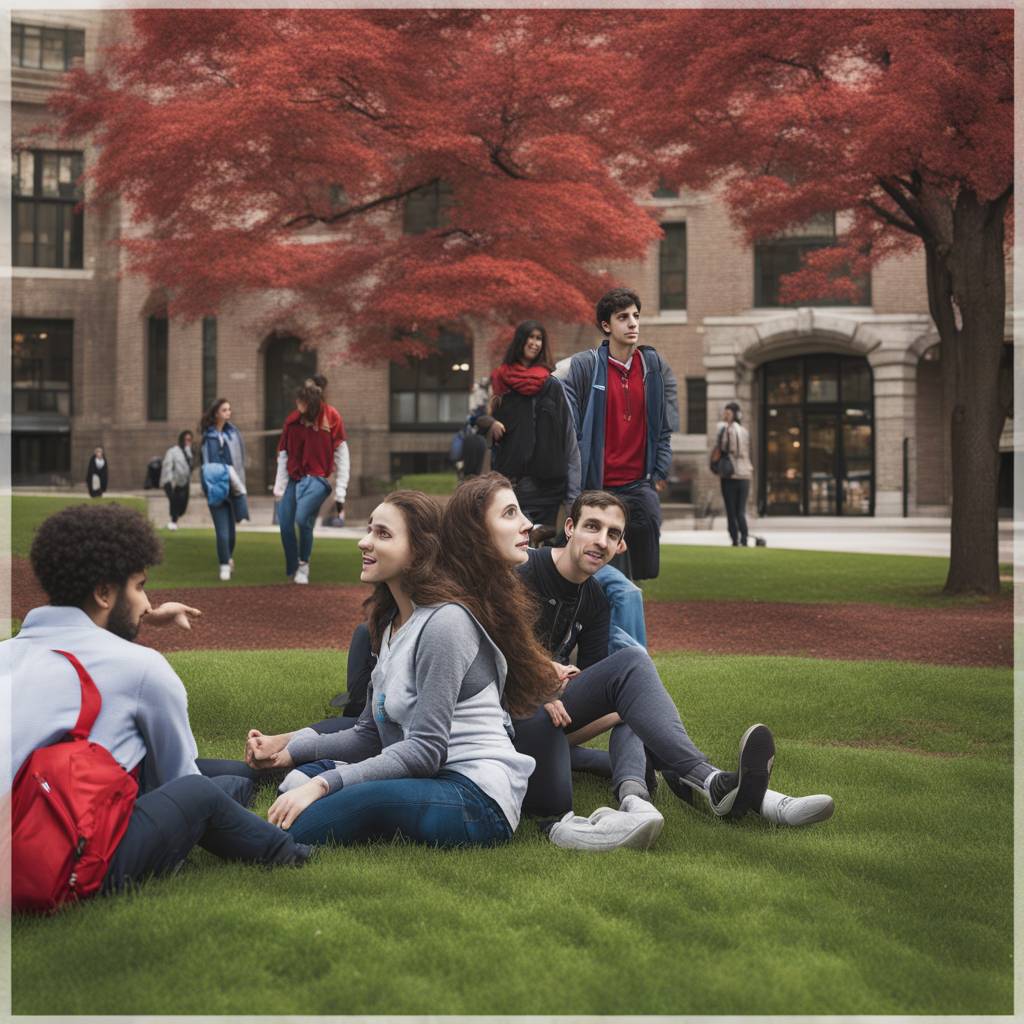A recent incident at Rutgers University involving pro-Palestinian protesters disrupting a town hall meeting, shouting anti-Israel slogans, and targeting Jewish students has sparked outrage and concern. The meeting, hosted by the Rutgers University Student Assembly, featured the discussion of two BDS referendums aimed at severing ties with Tel Aviv University and divesting from anything connected to Israel. The protesters’ behavior, including chanting and intimidation tactics, left Jewish students feeling unsafe and targeted. The university administration’s decision not to take action against the inflammatory conduct has raised questions about the handling of antisemitism on campus.
Participants at the town hall, including student Rivka Schafer, experienced unsettling incidents both during the meeting and in her dormitory where pro-Palestinian flyers were posted targeting her and promoting the BDS referendum. Despite feeling threatened, Schafer chose to attend the town hall to voice her concerns and support for Israel. The incidents at Rutgers have raised concerns about the prevalence of antisemitic behavior, both overt and covert, on campus, including instances of bullying and discriminatory conduct within student groups.
Cory Rothbort, an attorney representing Schafer and another student, highlighted the gravity of the situation, calling for action to prevent further harassment and discrimination against Jewish students. He emphasized the need for universities to address such incidents proactively and protect students from being bullied or intimidated based on their religious beliefs or other characteristics. Rothbort also expressed frustration with the defense of “inaction” by Rutgers on the basis of the First Amendment, stressing that hateful conduct and incitement to violence are not protected speech.
Despite the turmoil, some students like Joe Gindi have shown resilience and determination in advocating for their rights and safety on campus. Gindi, who has testified in front of the House Committee on Education, expressed his disappointment with the escalating incidents of antisemitism at Rutgers and the impact it has had on the Jewish community. He commended Rutgers President Jonathan Holloway for his stance against the BDS movement and efforts to maintain relationships with international partners like Tel Aviv University, demonstrating support for the Jewish community amid the controversy.
Holloway, in a statement, reaffirmed his belief in engagement over isolation and condemned the BDS movement as wrong and counter-productive. He emphasized the importance of diplomacy and discussion in achieving lasting progress and peace, citing Rutgers’ partnerships with universities worldwide as contributing to its academic and research mission. While the incident at the town hall exposed deep divisions and tensions on campus, it also highlighted the need for constructive dialogue, mutual respect, and a commitment to upholding the values of inclusivity and diversity within the university community.
Moving forward, it is crucial for Rutgers and other institutions to address instances of discrimination, intimidation, and harassment in a timely and effective manner, ensuring the safety and well-being of all students. By fostering a culture of respect, understanding, and inclusivity, universities can create a conducive environment for dialogue, collaboration, and engagement on complex and sensitive issues such as the Israeli-Palestinian conflict. The events at Rutgers serve as a reminder of the ongoing challenges of combating antisemitism and promoting tolerance on college campuses, calling for continued vigilance and proactive measures to uphold the rights and dignity of every student.













